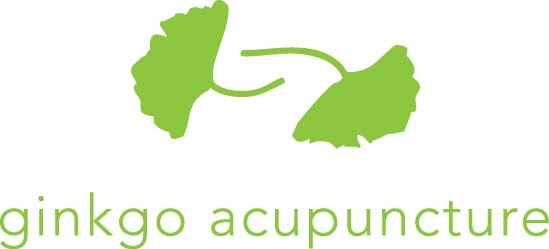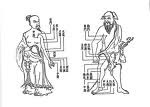
Cupping is a method of treatment that has been used in Traditional Chinese Medicine for thousands of years. It has the function of warming and promoting the free flow of energy along the meridians. It's used to dispel cold dampness and has the effect of diminishing pain, such as back, shoulder and leg pain. It is also used to treat gastrointestinal disorders, lung issues such as coughing and asthma, and the common cold.
You may have seen the telltale cupping marks on Gwyneth Paltrow a few years ago, or on the back of a Chinese swimmer at the 2008 summer olympics. These circular bruises are the result of a partial vacuum that is created with glass jars via either heat or manual suction. The most common method of cupping is "fire cupping." An alcohol soaked cotton swab is lit, and the flame is held under the jar for a moment before placing the jar on the skin, creating a partial vacuum. The tissue is pulled up into the jar, creating local stagnation, and drawing "old blood" and toxins to the surface. When the jar is removed, smooth energy flow is returned to the meridians. Cupping can be used locally, on specific acupuncture points and sore muscles, or the cups can be moved along meridians while maintaing a vacuum.
While the circular marks left by cupping are visible for several days, cupping is not painful. Most people feel only a slight tug on the skin, and the heat used in fire cupping is not felt at all. It is similar to a very deep tissue massage, which improves circulation and breaks up stagnation. Cupping can be used alone or in conjunction with an acupuncture treatment and can improve healing time.








